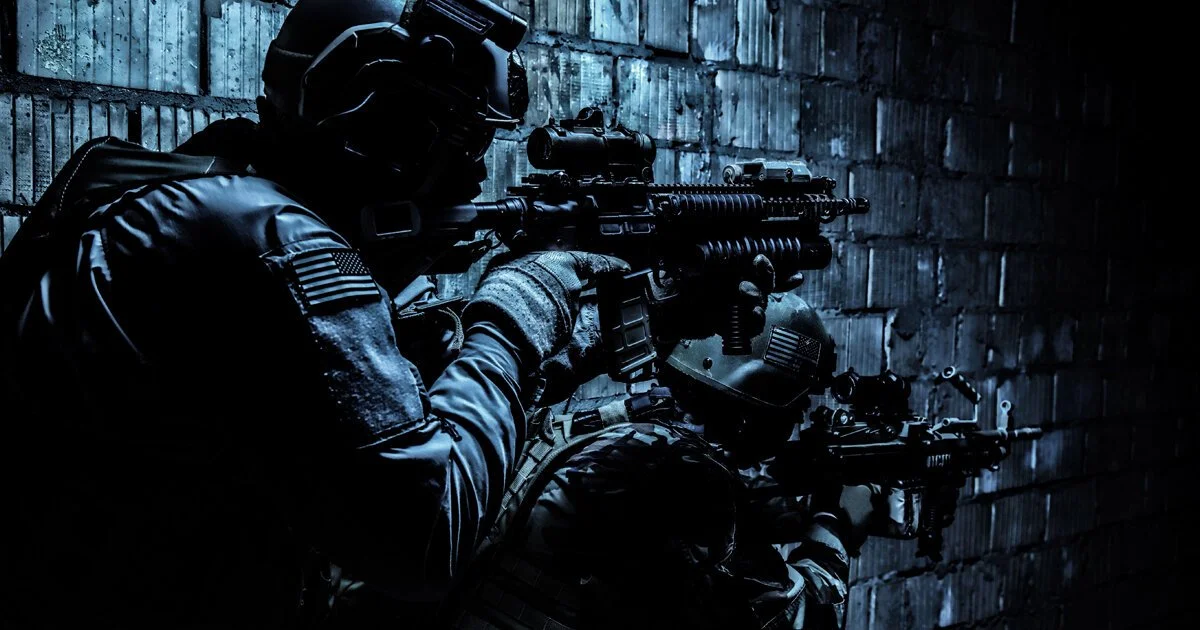Two-Person CQB: Training for the Fight
This short article is taken from our Two-Person CQB Online Course and companion book. It provides a brief discussion of how to train for two-person combat and how to apply tactics to a variety of common scenarios. We welcome your reactions, comments and ideas on our Facebook page and if you like the article, click below to check out our free preview of the Two-Person CQB Online Course.
Training for Two-Person CQB
No book, online course or article can teach you to perform physical skills. If you do not physically practice techniques until they are second nature, and if you do not keep your knowledge and skills sharp, no technique in can help you in a life-threatening situation.
Training is particularly important for two-person operations. Not only do you need to know how to perform various techniques yourself, but you and your partner need to know how to work as a team and coordinate your actions in a safe manner. Whenever you are operating as a team with more than one person, there is a significant risk of friendly fire. Effective training, practice and rehearsals offer the best way to avoid friendly fire accidents.
When developing a training program, you should aim to train with the person you are likely to find yourself fighting alongside in an emergency situation. If you live alone with your wife, you should practice working as a team with your wife. Having prior experience working and training with the person who is fighting by your side greatly increases your chances of survival and improves your reaction speed.
Modern life is busy and it can be difficult to find adequate time to conduct training. However, it does not take thousands of hours of training to greatly increase your effectiveness and chances of survival. Short training sessions of just 15-minutes can prove extremely effective over time and greatly increase your skill as long as you do not go for extended periods without practicing.
If you are training for a home defense scenario, one of the best techniques is to simply practice moving tactically through your house as a team. In addition, you can think through various scenarios and make plans for how to deal with them. You can even have a friend play the role of the intruder and practice reacting to various adversary actions. You can practice effectively by just going through the motions without actually shooting or using training ammunition.
If you have mastered the tactics and techniques for two person operations but you have never actually fired a gun, you cannot hope to be effective. Therefore, part of your training routine should include tactical marksmanship practice.
We hope you found the short article useful and once again we welcome your reactions, comments or suggestions on our Facebook page where we frequently hold constructive discussions on tactics with people from various tactical backgrounds and experience levels. Also, click above if you would like to check out the first two modules of our online course for free.

